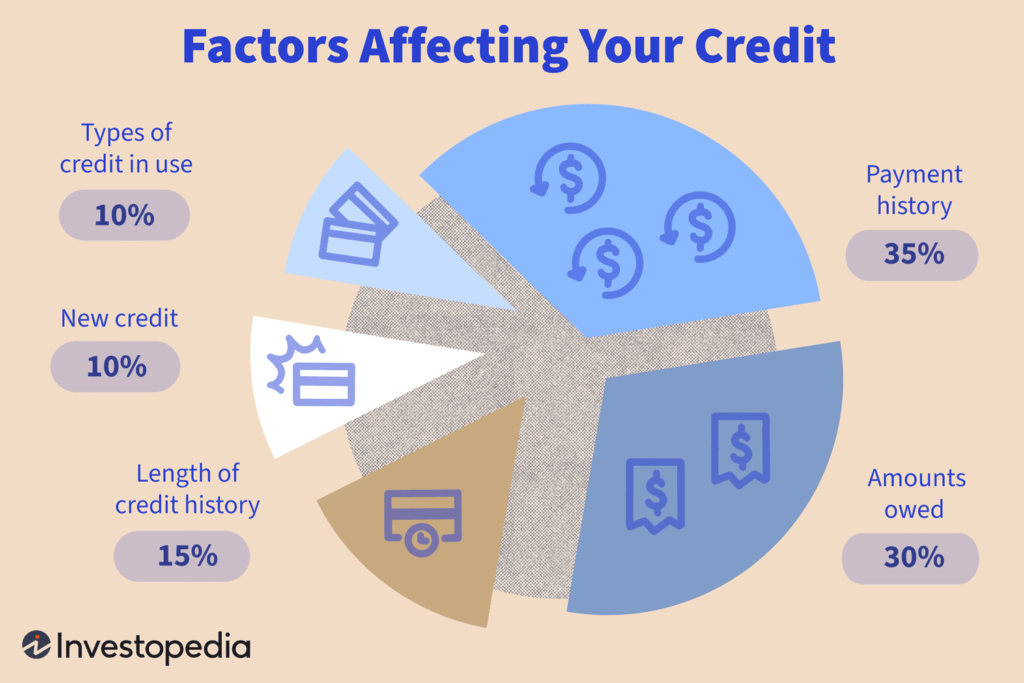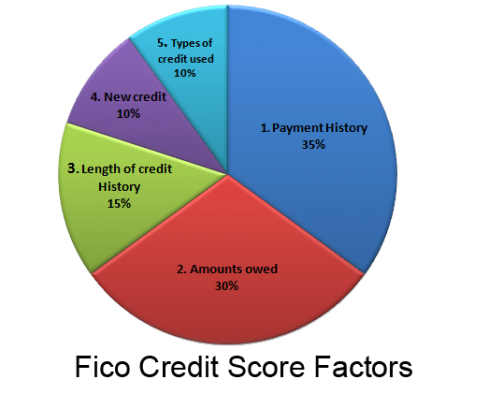In this article, we will explore the various factors that can have an impact on your credit score. From payment history to credit utilization, we will discuss the key elements that lenders consider when evaluating your creditworthiness. Additionally, we will provide you with practical tips on how to address these factors and improve your credit score. By the end of this article, you will have a better understanding of what influences your credit score and the steps you can take to maintain good credit health.
Understanding Credit Scores
What is a credit score and why is it important?
A credit score is a numerical representation of your creditworthiness. It provides lenders with an evaluation of your ability to repay borrowed money. Credit scores range from 300 to 850, with a higher score indicating a lower credit risk. Lenders use credit scores to make decisions about loan approvals, interest rates, and credit limits.
Having a good credit score is vital because it can determine your eligibility for loans, credit cards, and favorable interest rates. It also influences other areas of your financial life, such as renting an apartment or getting insurance. Understanding the factors that impact your credit score is the first step in taking control of your financial future.
How are credit scores calculated?
Credit scores are calculated using a variety of factors, each carrying a different weight. The most commonly used credit scoring models, such as FICO and VantageScore, consider the following factors:
-
Payment history: This is the most significant factor, accounting for about 35% of your credit score. It looks at your track record of making timely payments on your debts. Consistently paying bills on time helps improve your credit score.
-
Credit utilization: This factor accounts for about 30% of your credit score. It measures the amount of credit you’re using relative to your total available credit limit. Keeping your credit utilization below 30% demonstrates responsible credit management.
-
Length of credit history: The length of time you’ve had credit accounts for about 15% of your credit score. Generally, the longer your credit history, the better. It reflects your experience in managing credit responsibly over an extended period.
-
Credit mix: This factor accounts for about 10% of your credit score. It considers the types of credit you have, such as credit cards, loans, and mortgages. A diverse mix of credit can positively impact your credit score.
-
New credit: This factor accounts for about 10% of your credit score. It refers to recent applications for credit and opening new accounts. Opening multiple new credit accounts within a short period can lower your score.

This image is property of www.investopedia.com.
Factors that Impact Credit Scores
Understanding the factors that impact your credit score is the foundation for improving and maintaining a good credit score. Let’s take a closer look at each factor and how you can address them:
Payment history
Your payment history has the most significant impact on your credit score. Making timely payments on all your bills, including credit cards, loans, and utilities, is crucial. Late payments, collections, and other negative information can have a severe impact on your creditworthiness. To address this factor:
- Make timely payments: Set up reminders or automatic payments to ensure you never miss a payment deadline.
- Negotiate payment arrangements: If you’re struggling to make payments, contact your creditors to discuss possible payment arrangements or hardship programs.
- Enroll in automatic payments: Enrolling in automatic payments can help you stay on track with your payments and avoid late fees.
Credit utilization
Credit utilization measures the amount of credit you’re using compared to your total credit limit. Keeping your credit utilization ratio below 30% is advisable. To address this factor:
- Pay off balances in full: Aim to pay off your credit card balances in full each month. This helps keep your credit utilization low.
- Request credit limit increases: If you have a good payment history, you can request a credit limit increase to lower your credit utilization ratio.
- Use credit responsibly: Avoid maxing out your credit cards or carrying high balances. Utilize credit sparingly and responsibly.
Length of credit history
The length of your credit history is important in establishing a good credit score. It’s beneficial to have a lengthy credit history to demonstrate your ability to manage credit responsibly over time. To address this factor:
- Maintain old credit accounts: Keep your oldest credit accounts open, even if they have a zero balance. Closing old accounts can shorten your credit history and potentially lower your credit score.
- Avoid closing credit accounts: Closing credit accounts can negatively impact your credit score. Keep them open, especially if they have a positive payment history and low or no balances.
- Open new credit accounts responsibly: Only open new credit accounts when necessary and avoid opening multiple accounts within a short period.
Credit mix
Having a diverse mix of credit accounts demonstrates your ability to manage different types of credit. This factor can positively impact your credit score. To address this factor:
- Use different types of credit: Utilize a mix of credit accounts like credit cards, loans, and mortgages to show your ability to manage different types of credit.
- Use secured credit cards: If you’re building credit, consider getting a secured credit card, which requires a cash deposit as collateral. Using it responsibly can help establish a positive credit history.
- Apply for a small loan: If you have no installment loans on your credit report, applying for a small loan and paying it back on time can diversify your credit mix.
New credit
Applying for new credit can temporarily lower your credit score due to credit inquiries and new account openings. It’s important to be cautious and selective when opening new credit accounts. To address this factor:
- Limit new credit applications: Only apply for new credit when necessary. Multiple credit applications within a short period can negatively impact your credit score.
- Monitor credit inquiries: Regularly check your credit report for any unauthorized or unfamiliar credit inquiries. Report any discrepancies immediately.
- Be cautious with multiple credit applications: Applying for multiple credit accounts within a short time frame can raise red flags to lenders. Be mindful of how many credit applications you submit.

This image is property of bt-wpstatic.freetls.fastly.net.
Monitoring and Managing Credit
To maintain and improve your credit score, it’s essential to actively monitor and manage your credit. Here are some steps you can take:
- Regularly check credit reports: Obtain and review your credit reports from the three major credit bureaus (Equifax, Experian, and TransUnion). Look for any errors or discrepancies that may be negatively impacting your credit score.
- Dispute incorrect information: If you find any errors on your credit report, file a dispute with the credit bureaus to have them corrected. Removing inaccurate information can improve your credit score.
- Monitor credit utilization: Keep track of your credit card balances and total credit limit. Aim to keep your credit utilization ratio below 30% to maintain a good credit score.

This image is property of beehive.org.
Utilizing Credit-Building Tools
If you’re struggling with credit issues or need assistance in improving your credit, there are credit-building tools available. Consider the following options:
- Use credit monitoring services: Subscribe to a credit monitoring service that provides regular updates on your credit score and any changes on your credit reports. This can help you stay informed and take prompt action when necessary.
- Seek professional credit counseling: If you’re overwhelmed with managing your credit or need guidance, consider reaching out to a reputable credit counseling agency. They can provide personalized advice and assistance in creating a plan to address your credit-related concerns.
- Consider credit repair services: If you have significant credit issues or errors on your credit reports that you’re unable to resolve on your own, you may consider hiring a reputable credit repair company. They can work with the credit bureaus on your behalf to dispute incorrect information and improve your credit score.

This image is property of images.clickdealer.co.uk.
Conclusion
Improving and maintaining a good credit score requires understanding the factors that impact your creditworthiness and taking proactive steps to address them. By making timely payments, managing your credit utilization, maintaining a lengthy credit history, diversifying your credit mix, and handling new credit responsibly, you can improve your credit score over time.
Regularly monitoring your credit, disputing any incorrect information, and utilizing credit-building tools can also help you achieve and maintain a good credit score. Remember to seek professional advice if you encounter challenges in managing your credit effectively. By taking control of your credit, you can pave the way for a brighter financial future.

This image is property of www.investopedia.com.
